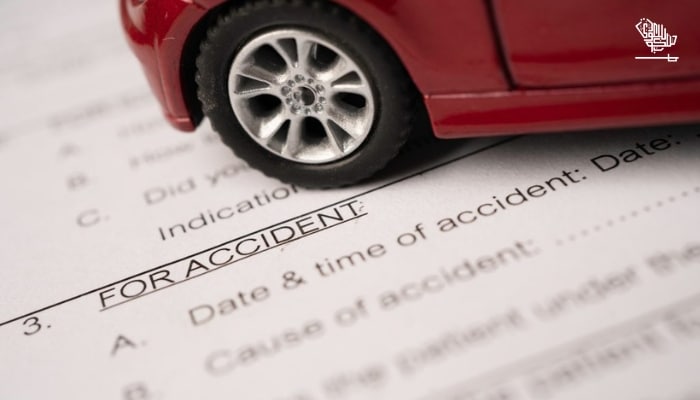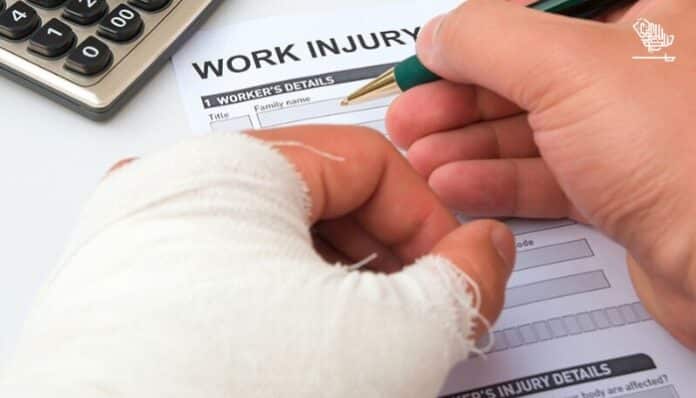Car accidents can be scary and stressful. In the aftermath of a collision, your mind might be racing with questions: Who’s to blame? How much will repairs cost? What if I’m injured?
While seeking compensation for damages might seem like an afterthought, understanding the process before filing a car accident claim can make a big difference in the outcome of your case.
In this guide, we’ll discuss the do’s and don’ts of a car accident case from a lawyer’s perspective, providing you with the knowledge to navigate the legal process confidently and increase your chances of a successful outcome.
Here’s what you should and shouldn’t do after a car accident.
Immediate Steps After a Car Accident
The moments following a car accident are crucial. Here’s what to do to protect yourself and build a strong case:
- Ensure your safety and the safety of others involved. Check for injuries and call 911 immediately if needed.
- Gather information at the scene. This is your chance to document the accident. Collect the following:
- Names and contact information of everyone involved, including drivers, passengers, and any witnesses.
- Insurance information from all drivers involved.
- Photos of the accident scene: Capture damage to vehicles, skid marks, traffic signals, and anything else relevant.
- Don’t admit fault or discuss the accident in detail. Even a simple “I’m sorry” can be misconstrued as an admission of blame. Stay calm and polite. Avoid taking responsibility.
- Seek medical attention, even if injuries seem minor. Sometimes, injuries can manifest later. Get checked by a doctor to document any medical concerns and follow their treatment recommendations.
Contacting Your Insurance Company
After leaving the accident scene, your next step should be to contact your insurance company. Here are some important do’s and don’ts to bear in mind:
- DO: Report the accident to your insurance company as soon as possible. It’s crucial to adhere to your insurance company’s deadlines for reporting an accident. Prompt notification is not just about following procedures; it ensures that the incident is fresh in your memory, which can help accurately document the events. Plus, timely reporting facilitates the claims process, potentially speeding up your access to coverage and benefits.
- DON’T: Volunteer unnecessary information or admit fault. While it’s important to be honest when discussing the incident with your insurance provider, limit your conversation to the facts without speculating about who was at fault. Offering more information than what is asked for can inadvertently affect the claims process or your coverage. Stick to the details and let your insurance company handle any legal discussions or negotiations.
Working With a Lawyer
Car accident cases can get complicated quickly. Considering an experienced lawyer practicing car accidents can be a smart move. Here’s why:
- They handle the heavy lifting. A lawyer can negotiate with the at-fault party’s insurance company on your behalf, ensuring you receive fair compensation.
- They navigate the legal maze. Lawyers understand the complexities of car accident law and procedures, saving you time and frustration.
- They build a strong case. A lawyer knows how to gather evidence, document your injuries, and present a compelling case for maximum compensation.
When choosing a lawyer, prioritize comfort and reputation. Look for someone you feel you can trust and who has a history of success in car accident cases. Bar associations and online reviews can be helpful resources in finding a qualified lawyer.
Don’t wait to seek legal advice. The sooner you involve a lawyer, the sooner they can start working on your case. Delaying can make it harder to gather evidence and negotiate a favorable outcome.
Do’s and Don’ts When Communicating About Your Case
Once you’ve involved a lawyer, it’s essential to maintain proper communication with them and anyone else involved in your case. Here are some do’s and don’ts to keep in mind:
- DO: Follow your lawyer’s advice. Your lawyer works in your best interest and has the experience and knowledge to guide you through the legal process. Listen to their advice and trust their judgment.
- DO: Be truthful and consistent with your statements. This builds trust and strengthens your case. Record all communication, including dates, times, and who you spoke with.
- DO: Communicate primarily through your lawyer. They are trained to advocate for you and protect your rights. A lawyer can ensure your message is clear and avoid any misunderstandings.
On the other hand,
- DON’T: Discuss your case on social media. Any statements you make can be used against you, even if they seem harmless. Avoid posting about the accident or your injuries on social media and refrain from discussing details with friends and family.
- DON’T: Communicate without consulting your lawyer first. Anything you say can be used as evidence, so it’s important to have your lawyer review any written or verbal communication before sending it. This includes emails, texts, and recorded conversations.
Understanding the Claims Process
The claims process can vary depending on the specifics of your case. Here’s a general overview of what to expect:
- Investigation. Your lawyer will gather evidence, review medical records, and assess your damages to build a strong case.
- Settlement demand. Once your lawyer has gathered enough evidence, they will submit a settlement demand to the at-fault party’s insurance company for compensation.
- Negotiation. The insurance company may offer a settlement, but your lawyer will negotiate for a fair amount covering all your damages.
- Possible trial. If the insurance company refuses to settle or offers an inadequate amount, your case may go to trial. Your lawyer will represent you in court and argue for maximum compensation.
The claims process can take months or even years, depending on the complexity of your case. Some of the potential damages you may be entitled to include medical expenses, lost wages, property damage, pain and suffering, and more.
Keeping Track of Expenses
Keep a detailed record of all expenses related to the accident. These can include:
- Medical bills
- Lost wages
- Vehicle repair costs
- Property damage repair or replacement costs
- Transportation costs for medical appointments or work
- Any other expenses related to the accident or your injuries
These records will be vital in calculating the total damages you’ve incurred and seeking appropriate compensation. Be sure to save all receipts, invoices, and statements related to your accident and injury.
When to Consider Legal Action
If you’re unsatisfied with the insurance company’s settlement offer and believe you deserve more compensation, it may be time to consider legal action. Your lawyer can advise you on whether pursuing a lawsuit is in your best interest and what to expect from the process.
Legal action should also be considered if:
- The at-fault party’s insurance denies your claim
- You have significant damages, such as permanent injuries or extensive medical expenses
- You’re facing financial difficulties due to the accident and need compensation for lost wages
- The at-fault party’s insurance company is being uncooperative or delaying the claims process
In these situations, having an experienced car accident lawyer on your side is essential to fight for your rights and ensure you receive fair compensation.
Note: The content on this blog is for general informational purposes only and does not constitute legal advice. While we strive for accuracy, we make no guarantees about the completeness or reliability of the information provided. Consult a qualified legal professional for specific legal advice. Using this blog or communicating through it does not create an attorney-client relationship. We are not liable for any actions taken based on the information provided here.
DISCLAIMER: The images/videos/logos showcased on this page are the property of their respective owners. We provide credit and sources wherever possible. However, If you find that your image/video is displayed on this blog without authorisation, please contact us with the relevant details, and we will promptly address your concerns.




